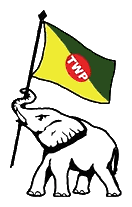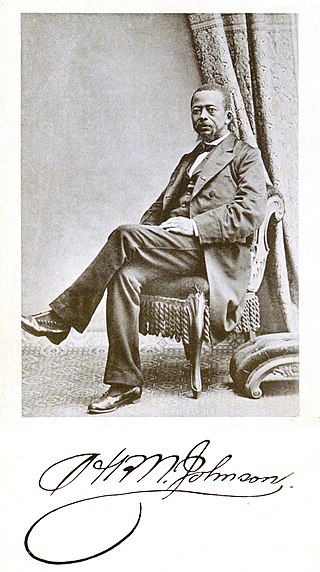Whig or Whigs may refer to:
Whig or Whigs may refer to:
A Tory is an individual who supports a political philosophy known as Toryism, based on a British version of traditionalist conservatism which upholds the established social order as it has evolved through the history of Great Britain. The Tory ethos has been summed up with the phrase "God, King, and Country". Tories are monarchists, were historically of a high church Anglican religious heritage, and were opposed to the liberalism of the Whig party.

The Whig Party was a mid-19th century political party in the United States. Alongside the Democratic Party, it was one of two major parties between the late 1830s and the early 1850s and part of the Second Party System. As well as four Whig presidents, other prominent members included Henry Clay, Daniel Webster, Rufus Choate, William Seward, John J. Crittenden, and John Quincy Adams. The Whig base of support was amongst entrepreneurs, professionals, Protestants, and the urban middle class. It had much less backing from poor farmers and unskilled workers.

The Republican Party, known retroactively as the Democratic-Republican Party, was an American political party founded by Thomas Jefferson and James Madison in the early 1790s. It championed liberalism, republicanism, individual liberty, equal rights, separation of church and state, freedom of religion, decentralization, free markets, free trade, and agrarianism. In foreign policy it was hostile to Great Britain and the Netherlands and in sympathy with the French Revolution and Napoleonic wars. The party became increasingly dominant after the 1800 elections as the opposing Federalist Party collapsed.
The Whigs were a political party in the Parliaments of England, Scotland, Ireland, Great Britain and the United Kingdom. Between the 1680s and the 1850s, the Whigs contested power with their rivals, the Tories. The Whigs became the Liberal Party when the faction merged with the Peelites and Radicals in the 1850s. Many Whigs left the Liberal Party in 1886 over the issue of Irish Home Rule to form the Liberal Unionist Party, which merged into the Conservative Party in 1912.

The True Whig Party (TWP), also known as the Liberian Whig Party (LWP), is the oldest political party in Liberia and Africa as a whole. Founded in 1869 by primarily darker-skinned Americo-Liberians in rural areas, its historic rival was the Republican Party. Following the decline of the latter, it dominated Liberian politics from 1878 until 1980. The nation was virtually governed as a one-party state under the TWP, although opposition parties were never outlawed.
The Tories were a loosely organised political faction and later a political party, in the Parliaments of England, Scotland, Ireland, Great Britain and the United Kingdom. They first emerged during the 1679 Exclusion Crisis, when they opposed Whig efforts to exclude James, Duke of York from the succession on the grounds of his Catholicism. Despite their fervent opposition to state-sponsored Catholicism, Tories opposed his exclusion because of their belief that inheritance based on birth was the foundation of a stable society.
The Rockingham Whigs in 18th-century British politics were a faction of the Whigs led by Charles Watson-Wentworth, 2nd Marquess of Rockingham, from about 1762 until his death in 1782. The Rockingham Whigs briefly held power from 1765 to 1766 and again in 1782, and otherwise were usually in opposition to the various ministries of the period.
The Radical Whigs were a group of British political commentators associated with the British Whig faction who were at the forefront of the Radical movement.

The committees of correspondence were a collection of American political organizations that sought to coordinate opposition to British Parliament and, later, support for American independence during the American Revolution. The brainchild of Samuel Adams, a Patriot from Boston, the committees sought to establish, through the writing of letters, an underground network of communication among Patriot leaders in the Thirteen Colonies. The committees were instrumental in setting up the First Continental Congress, which convened in Philadelphia in September and October 1774.

Patriots, also known as Revolutionaries, Continentals, Rebels, or Whigs, were colonists in the Thirteen Colonies who opposed the Kingdom of Great Britain's control and governance during the colonial era, and supported and helped launch the American Revolution that ultimately established American independence. Patriot politicians led colonial opposition to British policies regarding the American colonies, eventually building support for the adoption of the Declaration of Independence, which was adopted unanimously by the Second Continental Congress on July 4, 1776. After the American Revolutionary War began the year before, in 1775, many patriots assimilated into the Continental Army, which was commanded by George Washington and which secured victory against the British Army, leading the British to acknowledge the sovereign independence of the colonies, reflected in the Treaty of Paris, which led to the establishment of the United States in 1783.

Whiggism or Whiggery is a political philosophy that grew out of the Parliamentarian faction in the Wars of the Three Kingdoms (1639–1651) and was concretely formulated by Lord Shaftesbury during the Stuart Restoration. The Whigs advocated the supremacy of Parliament, government centralization, and coercive Anglicisation through the educational system. They also staunchly opposed granting freedom of religion, civil rights, or voting rights to anyone who worshipped outside of the Established Churches of the realm. Eventually, the Whigs grudgingly conceded strictly limited religious toleration for Protestant dissenters, while continuing the religious persecution and disenfranchisement of Roman Catholics and Scottish Episcopalians. They were particularly determined to prevent the ascension of a Catholic heir presumptive to the British throne, especially of James II or his legitimate male descendants and instead granted the throne to the Protestant House of Hanover in 1714. Whig ideology is associated with early conservative liberalism.

Richard Howly, sometimes spelled Howley, was an American planter and lawyer from Liberty County, Georgia. He served briefly as the governor of Georgia in 1780, as a delegate to the Continental Congress in 1780 and 1781, and as chief justice of Georgia in 1782 and 1783.
The Kirk Party were a radical Presbyterian faction of the Scottish Covenanters during the Wars of the Three Kingdoms. They came to the fore after the defeat of the Engagers faction in 1648 at the hands of Oliver Cromwell and the English Parliament. They purged the Covenanters' General Assembly and army of "ungodly elements" and crowned Charles II as King of Scotland in 1651, in return for his explicit endorsement of their religious and political agenda in the Treaty of Breda (1650).

Radicalism was a political movement representing the leftward flank of liberalism between the late 18th and early 20th century. Certain aspects of the movement were precursors to modern-day movements such as social liberalism, social democracy, civil libertarianism, and modern progressivism. This ideology is commonly referred to as "radicalism" but is sometimes referred to as radical liberalism, or classical radicalism, to distinguish it from radical politics. Its earliest beginnings are to be found during the English Civil War with the Levellers and later the Radical Whigs.

Hilary Richard Wright Johnson served as the 11th president of Liberia from 1884 to 1892. He was elected four times. He was the first Liberian president to be born in Africa. He had served as Secretary of State before his presidency, in the administration of Edward James Roye.
The 1768 British general election returned members to serve in the House of Commons of the 13th Parliament of Great Britain to be held, after the merger of the Parliament of England and the Parliament of Scotland in 1707.
Radical politics denotes the intent to transform or replace the fundamental principles of a society or political system, often through social change, structural change, revolution or radical reform. The process of adopting radical views is termed radicalisation.

The Whiggamore Raid was a march on Edinburgh by supporters of the Kirk faction of the Covenanters to take power from the Engagers whose army had recently been defeated by the English New Model Army at the Battle of Preston (1648).
The Irish Patriot Party was the name of a number of different political groupings in Ireland throughout the 18th century. They were primarily supportive of Whig concepts of personal liberty combined with an Irish identity that rejected full independence, but advocated strong self-government within the British Empire.
Country Party was the name employed in the Kingdom of England by political movements which campaigned in opposition to the Court Party.